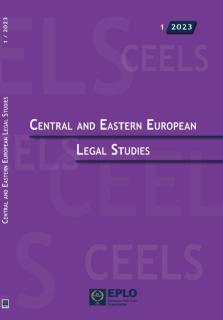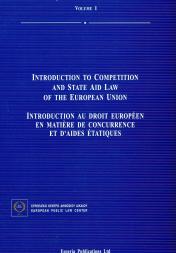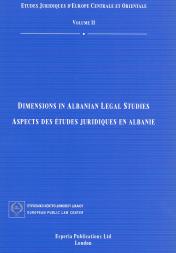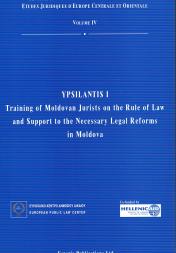
CENTRAL AND EASTERN EUROPEAN LEGAL STUDIES 1/2023
The first issue of the year 2023 of the Central and Eastern European Legal Studies starts with a paper on the right to housing, which reflects one of the basic human needs – the need for a dwelling. The paper deals not only with the legal but also with the social and demographic aspects of the right to housing, as well as ways of dealing with housing policy at home and abroad. The aim of the next paper is to examine and analyze supranational and national legislation relating to diasporas in Europe. The research has shown that the hypothesis that if a European state adheres to the political concept of nation, it does not have specific legislation on diasporas, was wrong: It is rather the level of emigration that determines the level of legislation a country has in place to deal with its expatriates. The third article in this issue deals with the question: “What Europe do we want?”. Peace and global prosperity are in danger, as autocracies resurge and threaten the democracies across the globe. The EU is obliged to respond by demonstrating its solidarity, its universal values and by setting up policies capable of guaranteeing an “effective deterrence” against revisionist visions. In the next paper, the author analyzes the question of infringement of the national constitution of 1910 (when the constitutinal period in Bosnia and Herzegovina began and which continued until the outbreak of the First World War in 1914) by the adoption of the Postal Savings Bank Law (Postsparkasse). The following paper examines the question of the legal regulation of the taxation of environmental pollution in the Republic of Lithuania using the environmental pollution tax mechanism, with which the State seeks not only to regulate and control environmental pollution, but also to collect the income needed to finance environmental protection measures. Last but not least, the main hypothesis in the next article is that law, like all other cultural elements, is subject to the mechanism of collective evolutionary selection. An individual society and normative system applied in society are interlinked and cannot exist without one another. Throughout human history the more effective civilization models or cultural superstructures prevailed, becoming fundaments for new modifications in a never-ending cycle, a process usually called progress.
Summary
D. Dulaková, Legal Aspects of Rental Housing in the Slovak Republic, their Transnational Context and Perspectives [IN ENGLISH] (27 pp.)
R. B. Szaniszló, Diaspora Legislation in Europe – Shall we Talk about It? [IN ENGLISH] (26 pp.)
D. Tsaknis, The Future of European Defense in the Shadow of War [IN ENGLISH] (10 pp.)
S. Savić, Law on Postal Savings Bank and Violation of the Constitution of 1910 [IN GERMAN] (10 pp.)
B. Sudavičius, Legal Regulation of the Taxation of the Pollution in the Republic of Lithuania [ [IN LITHUANIAN] (28 pp.)
D. Šmihula, The Mechanism of the Evolution of Law [IN ENGLISH] (19 pp.)

























